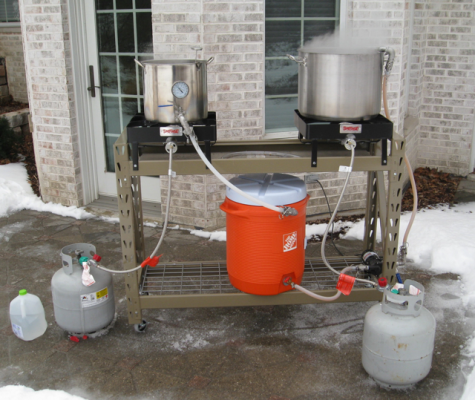hakuna matata
Recycles dryer sheets
I will (hopefully) be retiring here in 3 years or so and was sitting around the other day thinking of some of the things I would like to do. I have a lot of interests and so I was listing them out and figuring now that I am moving into that next phase I could now have the time to start indulging many of the things I would like to do in retirement. Sort of a pre-emptive foray into my retirement if you will.
So one of the things on the list that I like to do was drink beer Now I like beer and living here in the Northwest I am home to some fine microbrews. But I have always wondered how difficult it was to brew your own beer? So I have decided to embark on home brewing.
Now I like beer and living here in the Northwest I am home to some fine microbrews. But I have always wondered how difficult it was to brew your own beer? So I have decided to embark on home brewing.
I have a good friend who owns a company that sells kits, etc to home brewers and in fact I taking a class from him this Sunday. But I was wondering if there were any other home brew guys here who could give me some good advice.
So one of the things on the list that I like to do was drink beer
I have a good friend who owns a company that sells kits, etc to home brewers and in fact I taking a class from him this Sunday. But I was wondering if there were any other home brew guys here who could give me some good advice.



